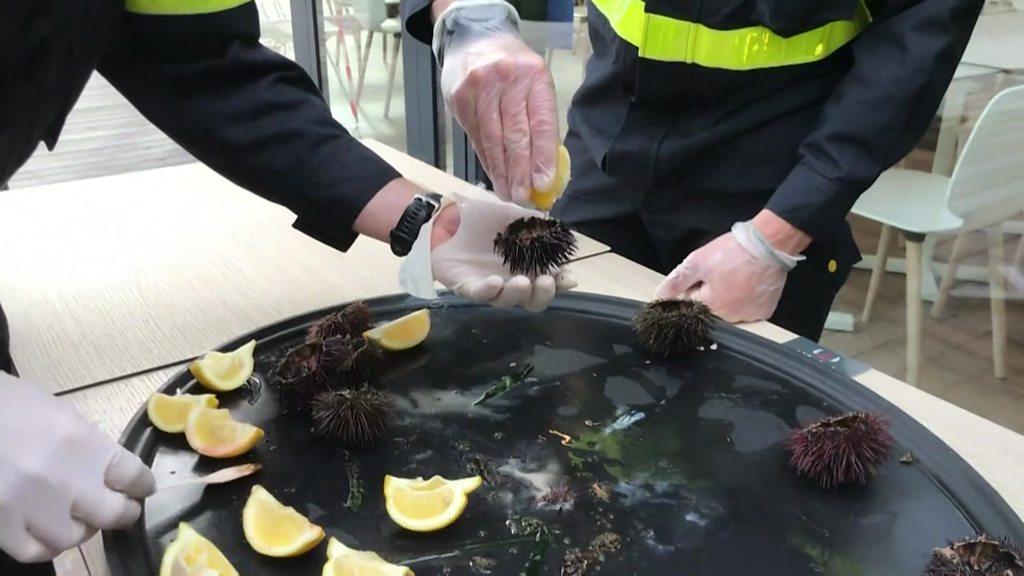Coronavirus: Next Britons flown from Wuhan to be taken to Milton Keynes
- Published
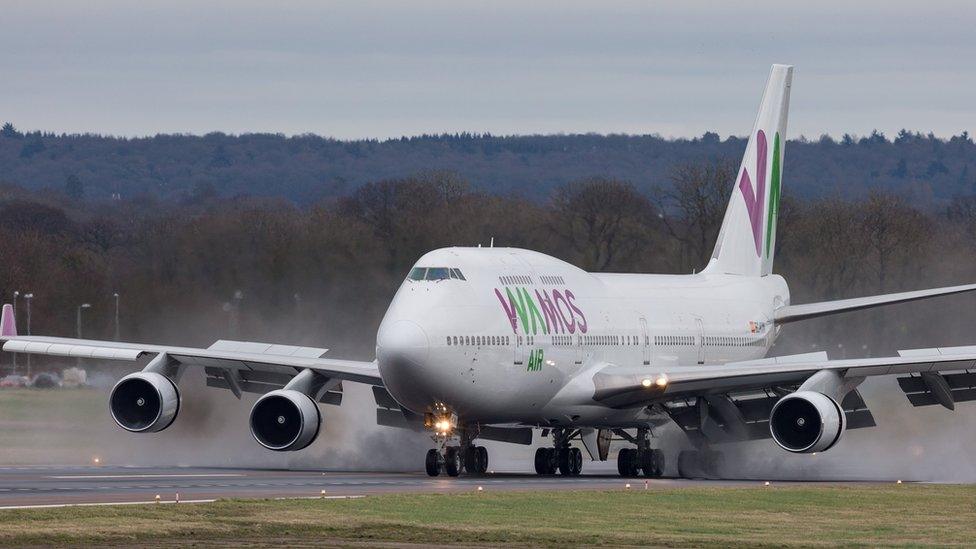
Nearly 100 Britons have already been flown out of Wuhan on flights arranged by the UK government
Around 150 Britons on the next UK government flight back from Wuhan will be taken to a conference centre in Milton Keynes for a 14-day quarantine.
UK citizens on two earlier repatriation flights from the Chinese city at the centre of the coronavirus outbreak are at Arrowe Park Hospital on the Wirral.
There have been three cases of coronavirus in the UK so far.
The third patient caught the virus at a business conference in Singapore, the BBC's Hugh Pym says.
Singaporean authorities contacted the man, who is British, to warn him there had been a confirmed case.
He is thought to have tested positive for the virus in Brighton and called NHS 111 from home for advice before going by arrangement to an isolation facility at the Royal Sussex County Hospital.
He was tested and then went home, isolating himself while he waited for the results. The man was then transported by the NHS to St Thomas's Hospital in London, where he is being treated.
The latest British nationals to be flown out of Wuhan on Sunday will be taken to Kents Hill Park, a training and conference venue on the outskirts of Milton Keynes.
Milton Keynes University Hospitals NHS Trust said there was no risk to local people as anyone showing symptoms would not be allowed to board the plane.
After they arrive, passengers will continue to be monitored and anyone who shows symptoms during their two-week stay will be tested for the virus, the trust said in a statement.
Anyone who tests positive will be isolated and given specialist NHS care.
Sea urchins and Swiss rolls: Quarantine around the world
The two other UK cases - both Chinese nationals - are being treated at the Royal Victoria Infirmary infectious diseases centre in Newcastle.
The patients - a University of York student and one of their relatives - tested positive for the virus after falling ill at a hotel in York.
There have been more than 31,000 cases worldwide, mostly in China.
More than 600 people have died but only two of these were outside mainland China - one in Hong Kong and one in the Philippines.
Cruise ship quarantine
Meanwhile, 61 people - including one British national - have tested positive for the virus on a cruise ship off the coast of Japan.
Briton Alan Steele, from Wolverhampton, who was on his honeymoon with his wife Wendy, is among those to be taken off the ship for hospital treatment.
He posted on Facebook on Friday that his new wife had remained on board.
He told friends: "Would also like to say that at the moment I am not showing any symptoms so just possibly a carrier. Will let you know how I am going on when possible."
Some 3,700 people are on board the Diamond Princess, which is quarantined in Yokohama for at least two weeks.
Diamond Princess passenger David Abel: "In addition to the face masks, we've now been given gloves"
Nearly 100 Britons have been flown out of Wuhan on flights arranged by the UK government.
All are now in quarantine on the Wirral for 14 days - the incubation period of the virus - to ensure they are not carrying the infection.
A final chartered flight for Britons is due to leave the city on Sunday, the Foreign Office said.
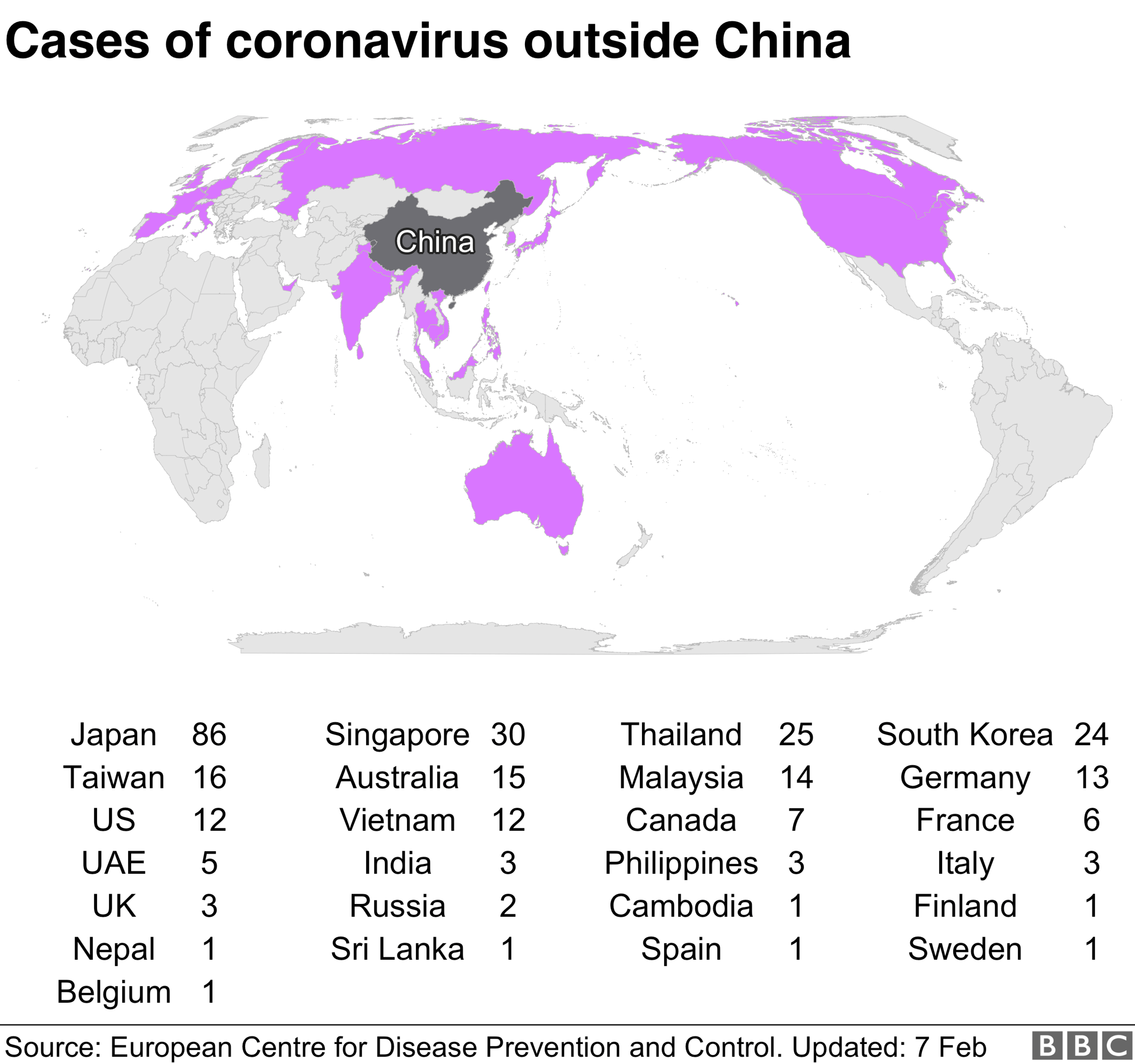

On Thursday, the government updated its advice for people arriving in the UK from nine Asian countries and territories.
Anyone returning from the specified countries in the past fortnight who has symptoms including a cough, fever or shortness of breath is advised to stay indoors and call the NHS 111 service.
Previously this advice had only applied to travellers arriving from mainland China.
The Foreign Office has also advised Britons in China to leave the country if they can to minimise the risk of exposure to the virus.
The coronavirus causes severe acute respiratory infection and symptoms usually start with a fever, followed by a dry cough. Most people infected are likely to fully recover - just as they would from a flu.
The World Health Organization said data from 17,000 patients suggested 82% have mild disease, 15% severe and 3% critical.
- Published7 February 2020
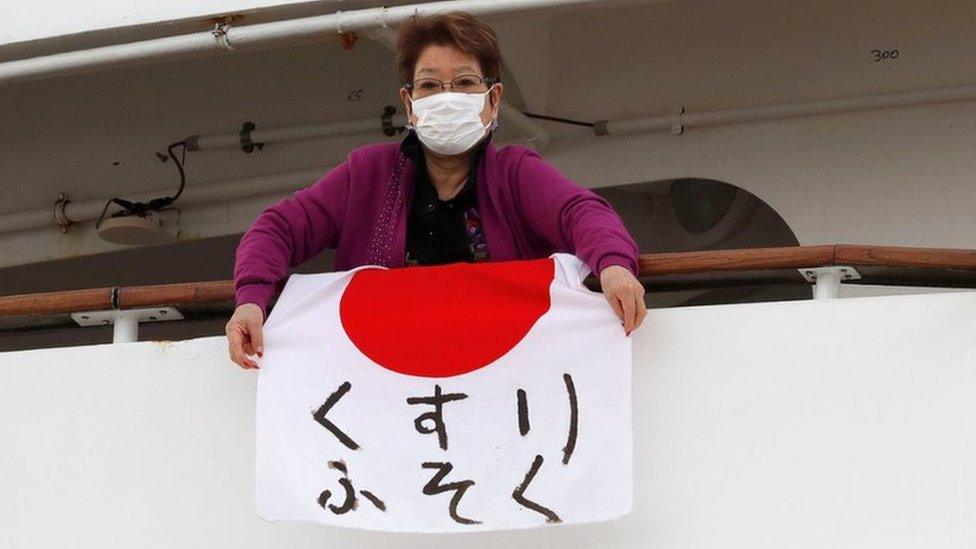
- Published8 February 2020
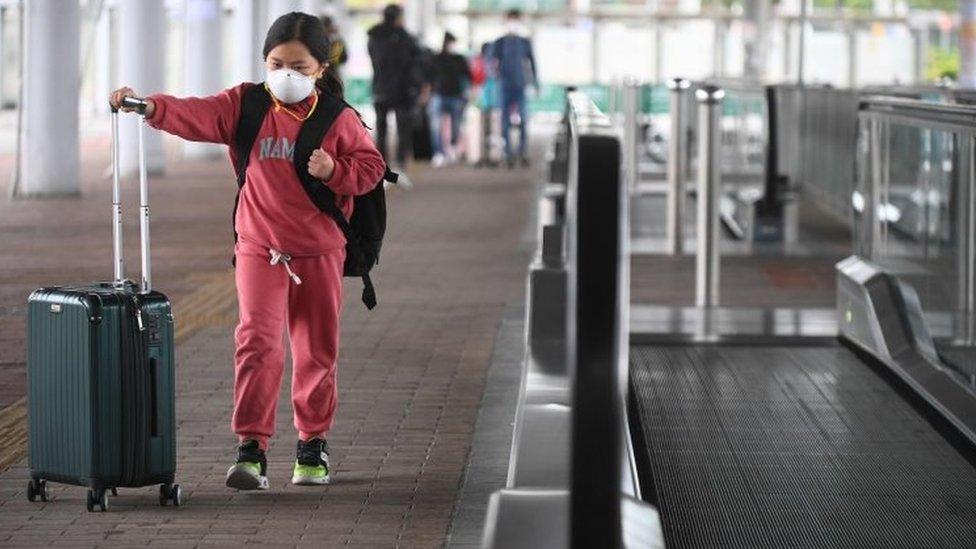
- Published7 February 2020
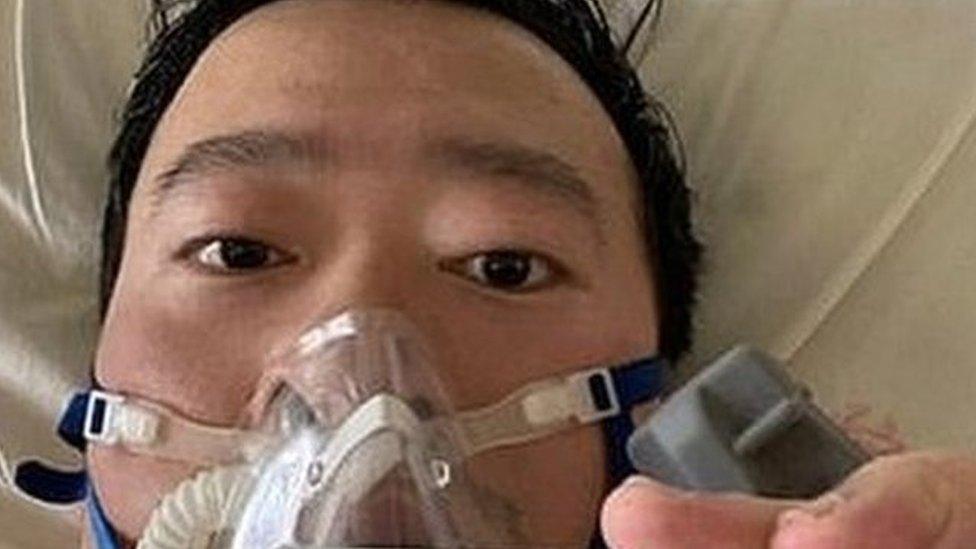
- Published6 February 2020

- Published5 February 2020
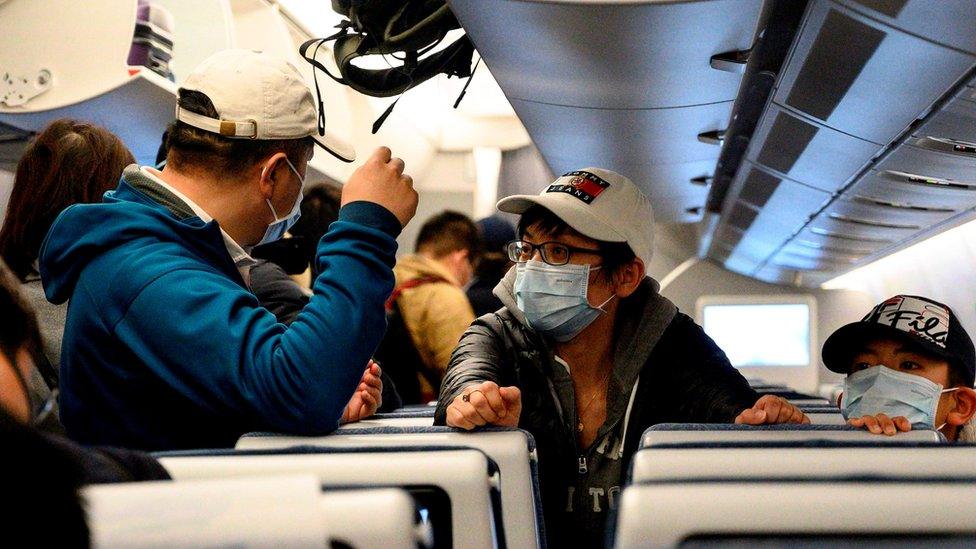
- Published7 February 2020
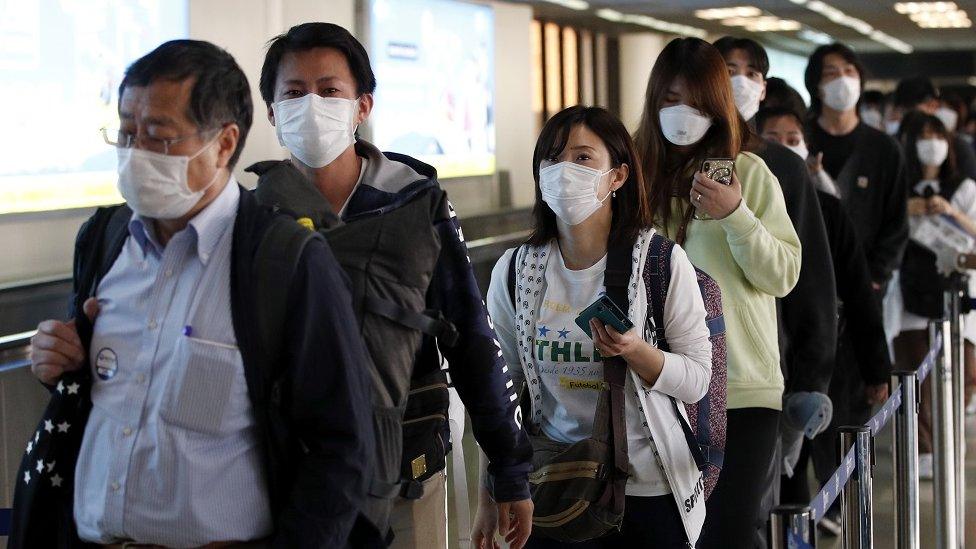
- Published5 July 2022

- Published7 February 2020
